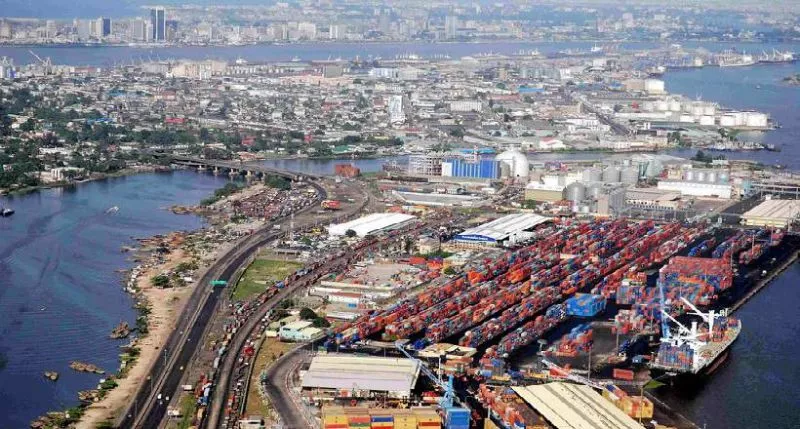Apapa, Lagos—often referred to as the Port of Lagos—is one of the most significant and industrious areas in Nigeria’s commercial capital. As both a bustling local government area (LGA) and a gateway for international trade, Apapa holds a central place in the country’s economic framework.
From its massive seaports to its serene residential zones, Apapa blends the energy of commerce with a touch of coastal calm, making it one of Lagos’s most unique urban environments.
Overview and Location
Located to the west of Lagos Island, Apapa sits along the Lagos Lagoon, bordered by Surulere, Ajegunle, and the Atlantic Ocean.
It serves as Nigeria’s primary maritime corridor—home to the nation’s busiest ports and key logistics facilities.
Despite being a heavily commercial area, Apapa GRA (Government Reserved Area) retains a suburban appeal, offering residents tree-lined streets, spacious homes, and relative tranquility within Lagos’s fast-paced landscape.
Historical Background
Apapa’s maritime legacy stretches back to the colonial era, when the British established it as a port and shipping center.
The development of the Apapa Wharf and later the Tin Can Island Port transformed Lagos into one of Africa’s leading trade cities.
For decades, Apapa has remained the backbone of Nigeria’s import and export operations, sustaining the nation’s economy and influencing urban growth across Lagos.
Economic Importance
Economically, Apapa, Lagos functions as the trade engine of Nigeria.
Its ports handle a large percentage of the nation’s imports, exports, and containerized cargo.
The district hosts a dense concentration of shipping firms, freight forwarders, customs offices, oil depots, and warehouses.
Beyond maritime activities, Apapa supports diverse industries including manufacturing, oil services, transportation, and government administration.
Its location near major highways and bridges enhances its role as a logistics hub, linking Nigeria’s production centers to global markets.
Key Features and Landmarks
- The Seaports
- Apapa Wharf and Tin Can Island Port are the two primary gateways for maritime trade in Nigeria. Together, they process millions of tons of goods annually and employ thousands across the logistics value chain.
- Industrial and Commercial Activity
- Apapa houses the offices of major oil companies, shipping conglomerates, and logistics providers. Its proximity to the ports ensures seamless access to import and export services.
- Infrastructure and Transport Links
- The district is connected by major routes such as Apapa-Oshodi Expressway, Eko Bridge, and Carter Bridge.
- While traffic congestion remains a challenge, ongoing rehabilitation and digital truck management systems are improving logistics flow.
- Residential Areas
- Apapa GRA remains one of Lagos’s most prestigious neighborhoods, characterized by spacious homes, green spaces, and relative quietness. It attracts professionals, expatriates, and business executives seeking proximity to the ports without sacrificing comfort.
- Public Amenities and Lifestyle Spots
- Schools: Notable institutions include Corona School Apapa and Indian Language School.
- Healthcare: Private clinics, hospitals, and pharmacies provide comprehensive care.
- Recreation: Apapa Club, Apapa Amusement Park, and scenic waterfront hangouts offer leisure options for residents and visitors.
- Shopping: The Apapa Mall and various local markets cater to daily needs and social activities.
Transportation and Accessibility
Apapa’s connectivity is both an advantage and a challenge.
It is linked to Lagos Island, the mainland, and industrial zones via a network of expressways and bridges. However, port-related truck traffic frequently causes congestion.
To address this, authorities have introduced measures such as:
- Electronic call-up systems for port-bound trucks.
- Dedicated truck terminals and parks.
- Reconstruction of key roads and rehabilitation of bridges.
- Ferry routes from Marina to Apapa Jetty, providing alternative transport for commuters.
These improvements aim to restore Apapa’s accessibility and ease of movement.
Challenges Facing Apapa
Despite its economic strength, Apapa, Lagos faces several urban issues:
- Traffic Congestion: Caused by port truck queues and narrow access roads.
- Infrastructure Decay: Heavy industrial use leads to road wear and drainage issues.
- Pollution: Industrial activities contribute to noise and air pollution.
- Flooding: Seasonal rains affect low-lying parts of the district.
Government-led urban renewal and port modernization programs are ongoing to address these concerns and restore Apapa’s efficiency and livability.
Lifestyle and Community
Beyond its industrial image, Apapa offers a surprisingly balanced lifestyle.
Residents in Apapa GRA enjoy a peaceful environment, mature trees, and social clubs that have existed for decades.
The district’s waterfront areas provide scenic views, while restaurants and lounges cater to a professional and expatriate crowd.
Apapa’s mix of commerce and comfort gives it a unique charm — a community where business meets leisure in the heart of Lagos.
Future Outlook
The future of Apapa, Lagos looks promising as both the federal and state governments intensify efforts to modernize the ports and infrastructure.
Key initiatives include:
- Port digitalization and automation projects to increase efficiency.
- Redevelopment of road networks and traffic management systems.
- Private-sector partnerships for logistics innovation and port expansion.
These improvements aim to transform Apapa into a modern maritime and logistics hub that balances industrial productivity with improved quality of life.
Apapa, Lagos stands as one of Nigeria’s most vital districts — a place where trade, logistics, and urban living intersect.
Despite its challenges, it remains the gateway to Nigeria’s economy and an enduring symbol of Lagos’s industrial strength.
With ongoing modernization and infrastructure renewal, Apapa continues to evolve as both an economic powerhouse and a community with deep historical roots.
See Apapa House Listings | Check out House Rental Options in Apapa
Browse Flats Listings in Apapa | See Flats Rental Listings in Apapa
Commercial Properties Listings | Commercial Properties rentals
